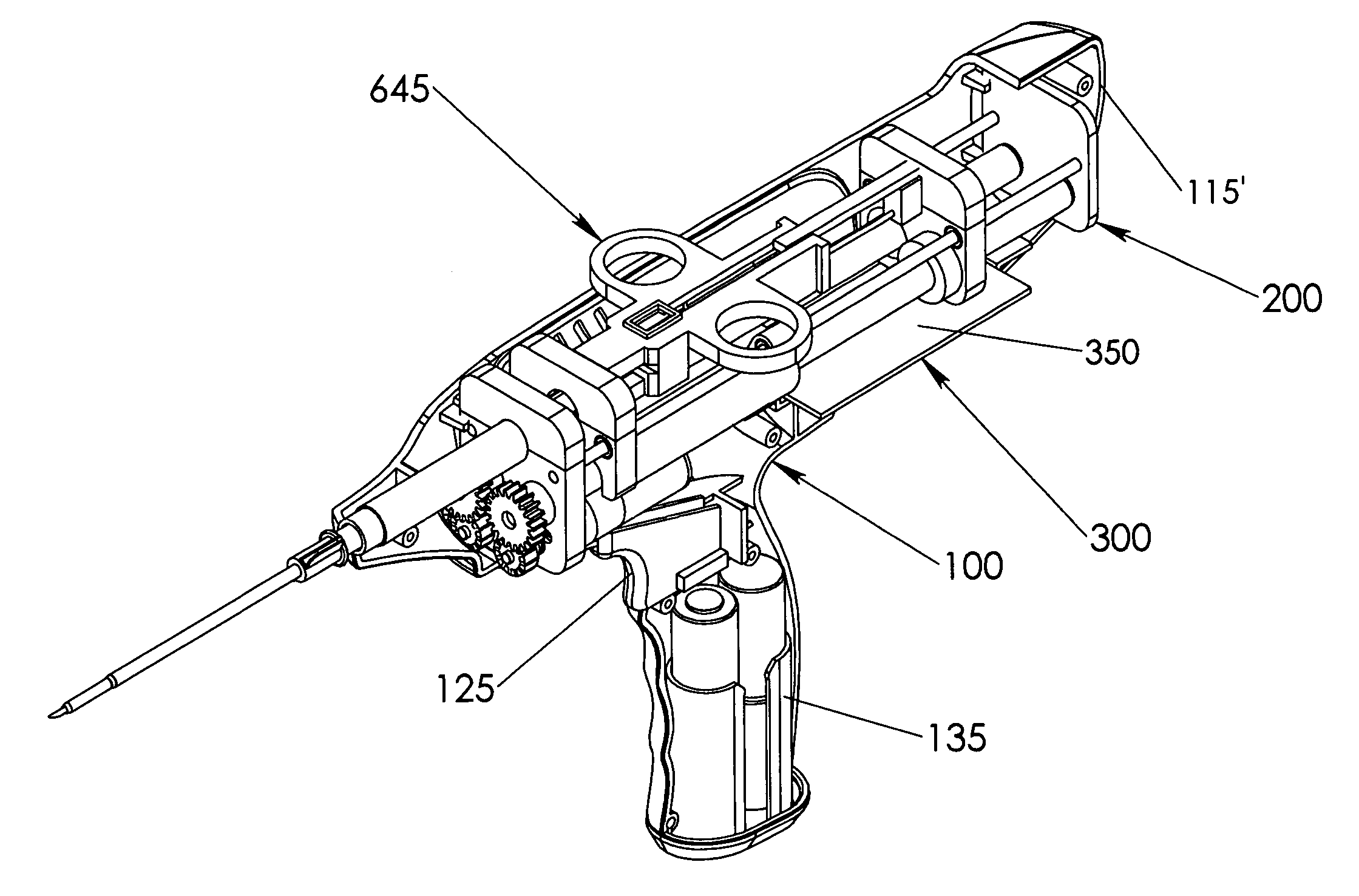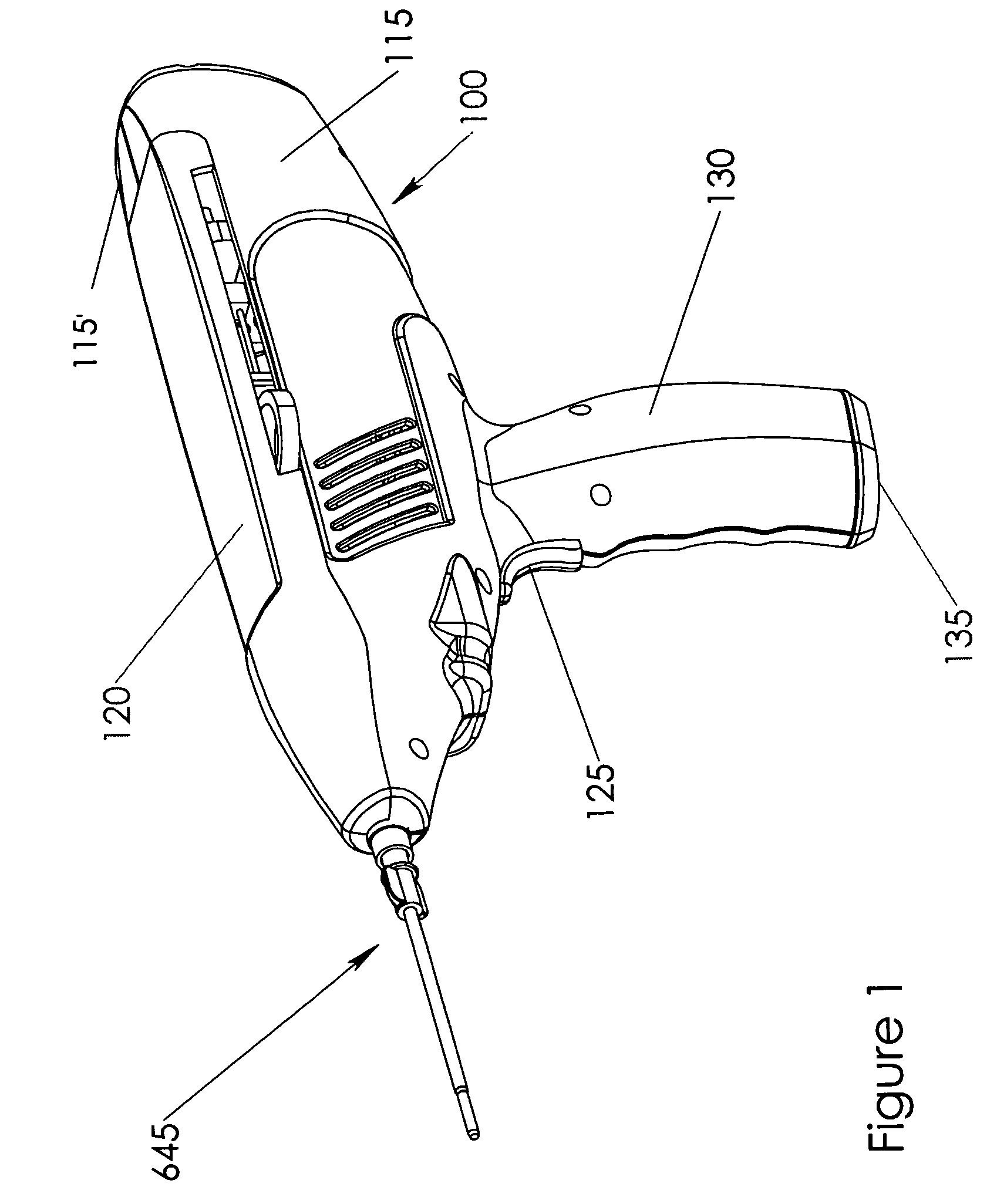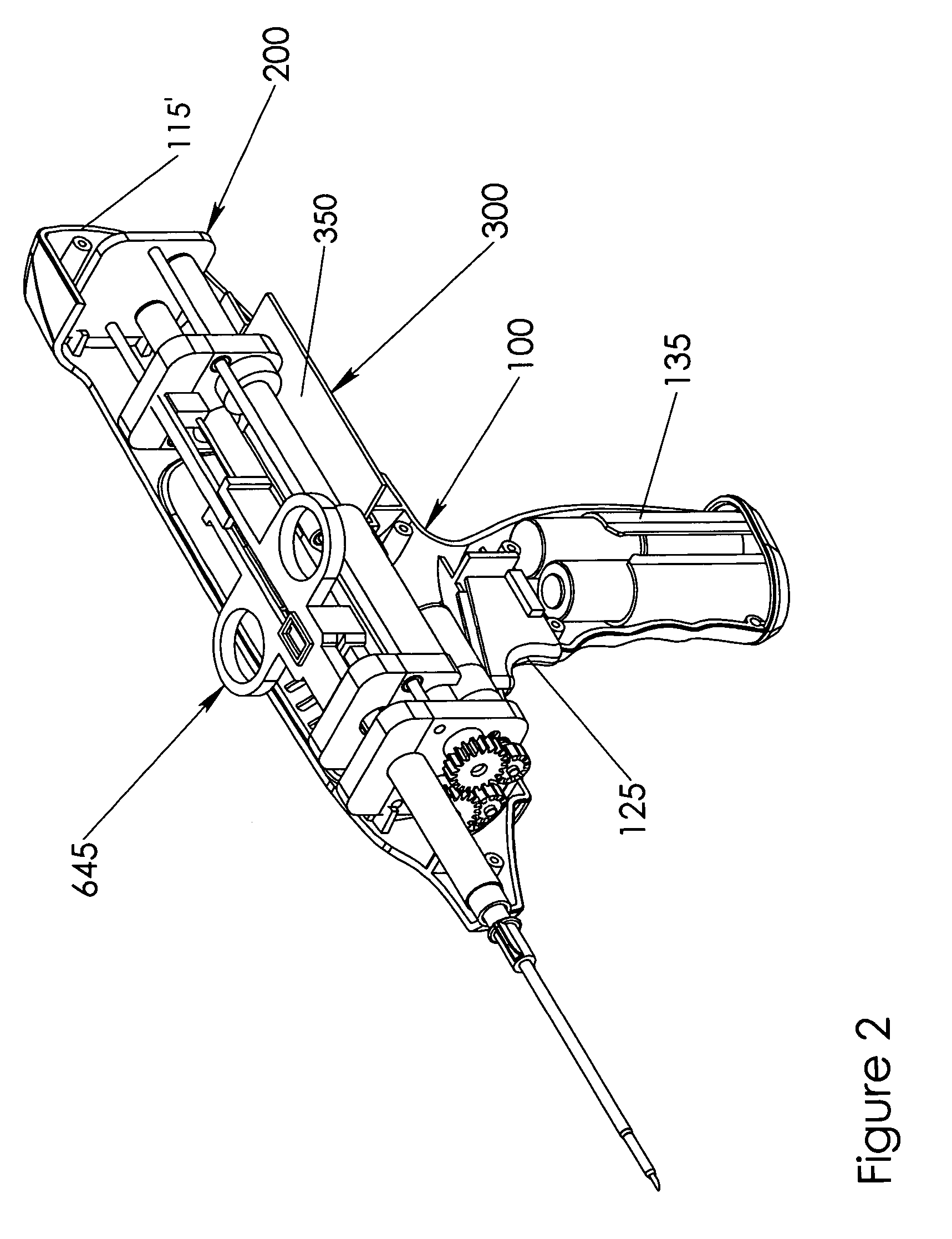Automated biopsy and delivery device
a biopsy and automatic technology, applied in the field of automatic biopsy and delivery devices, can solve the problems of a long catheter procedure, a high complication rate of excision biopsies from other organs, and a high complication rate of excision biopsies from the lungs
- Summary
- Abstract
- Description
- Claims
- Application Information
AI Technical Summary
Benefits of technology
Problems solved by technology
Method used
Image
Examples
Embodiment Construction
[0043]It is advantageous to define several terms before describing the invention. It should be appreciated that the following definitions are used throughout this application.
[0044]For the purposes herein the term “biopsy” shall refer to the tissue sample retrieved from the body for evaluation of a possible disease tissue.
[0045]For the purposes herein the term “circuit boards” shall refer to any board, or other device that mechanically supports and electrically connects electronic components using any type of conductive pathway.
[0046]For the purposes herein the term “coagulant” shall refer to any material ha the process of which causes blood to form solid clots.
[0047]For the purposes herein the term “cannula” shall refer to a thin walled tube.
[0048]For the purposes herein the term “hemostasis” shall refer to the stopping or arresting of bleeding.
[0049]For the purposes herein the term “motor” shall refer to any device having the ability to convert a source of energy into a mechanical...
PUM
 Login to View More
Login to View More Abstract
Description
Claims
Application Information
 Login to View More
Login to View More - R&D Engineer
- R&D Manager
- IP Professional
- Industry Leading Data Capabilities
- Powerful AI technology
- Patent DNA Extraction
Browse by: Latest US Patents, China's latest patents, Technical Efficacy Thesaurus, Application Domain, Technology Topic, Popular Technical Reports.
© 2024 PatSnap. All rights reserved.Legal|Privacy policy|Modern Slavery Act Transparency Statement|Sitemap|About US| Contact US: help@patsnap.com










